Project Description
Interview with
Artist Manager: David Hume
Boundary Sounds
(Clubfeet, Hazlett, MEZKO, Moonbase, Nicole Millar, Ninajirachi, Oliver Tank and Purple Sneakers DJs)
Interviewer: Jemma Bird
.
.
In the past, AMNplify has spoken to an array of incredible artists that bring us our favourite music, play our favourite shows and headline our favourite festivals. All of this wouldn’t be possible without the copious amounts of work that goes on behind the scenes.
Amnplify Interviewer Jemma Bird had the chance to speak to some of the hardest working individuals we know and gain a BIRD’S EYE VIEW of what their role in the industry is really like.
In this instalment of BIRDS EYE VIEW, Jemma talks to Artist Manager, coffee enthusiast and all-round top bloke, David Hume. He and his business partner Martin Novosel have a really promising roster of artists at Boundary Sounds including Clubfeet, Hazlett, MEZKO, Moonbase, Nicole Millar, Ninajirachi, Oliver Tank and Purple Sneakers DJs. Check out our chat below where Dave talks the highs and lows of being an artist manager and the perks of festival catering!
.
What made you pursue a career in Artist Management?
It was a number of factors that at the time I didn’t really think of and it wasn’t really a conscious decision. I played in a band for a couple of years and made connections with a few people in the industry.
When that came to an end, a friends band approached me if I had some contacts and could help them out getting a gig here or there. Before I knew it, they asked me if I wanted to help them out in a more official capacity. I didn’t really know what that meant but I thought why not! I started talking to agents and record labels and building a team around them. Then they asked me to be their manager and again, I didn’t really know what that meant.
From there my friend hooked me up with an internship at Scorpio Music. That then turned into a job where I was working as a day to day manager and I guess I just woke up one day as an artist manager and something that came about by accident turned into a career – a happy accident!. In saying that, if it wasn’t something that I was passionate about and didn’t love, I don’t think I could’ve stuck with it.
.
How did you come to work at Boundary Sounds?
Through some good friends, Greg Carey and Joel Connolly who used to run Umbrella Music which is now Grow Yourself Up. Martin Novosel, Head of Boundary Sounds, was looking for someone to help out with his roster. We had a really good chat 4-5 years ago and we really connected. I was able to learn a lot from him and apply his skills and knowledge to the baby bands I was working with. I started off doing this one or two days a week just to help him out with the workload. A few years later it has turned into a great partnership and we have a really exciting roster full of great, young artists.
.
Your current roster consists of Clubfeet, Hazlett, MEZKO, Moonbase, Nicole Millar,
Ninajirachi, Oliver Tank, Purple Sneakers DJs. Do you personally manage certain artists?
It’s quite collaborative with Martin and I. Everyone is under the Boundary Sounds roster now. There are certain artists that I work more closely with than Martin and vice versa but we are both across everything. Someone once attributed it to the ‘hit by a bus theory’; if one of us was hit by a bus, the business would still all run smoothly. It’s kind of morbid when you think of it but it makes sense. For example, if I am out of action for a long period of time then Martin knows what’s going on and the artists careers don’t suffer as a result from that. It also works well if one of us is overseas, like Martin is with Nicole Millar at the moment in the US and I am back here making sure everything else is running smoothly. Having a partner definitely comes in handy a lot. I find myself very lucky to have stumbled into this partnership.
Artists are also so different and have different needs and strategies in order to be
successful, so it really is a strength having a partnership with Martin!
That’s exactly right. Some artists benefit from having one of us on tour with them and other artists you don’t need to worry about being on the road with them. It’s really good in terms of the artists mindset, their mental health and the managers mental health which is sometimes forgotten about but is really important.
.
How did you come to work with artists on your roster and are you constantly looking for new artists?
Again it’s a different process each time, but we are in a fortunate position to not need to go out every night of the week and look for the next greatest thing. Our radars are always open and we are always listening to new music.
Starting out, I was going out too many nights a week going to different bars and clubs to check out new bands and it was good fun. Now, record labels, publishers and agents are jumping on new bands a lot earlier than they did 5-10 years ago. So, bands that come across our radar may be from trusted agents, or partners or even artists reaching out directly.
We always love to meet up and talk to people and there’s so many great artists that we would love to manage but we just don’t have the time. We are happy to sit down and speak with them, give them any advice they might need and point them in the right direction. Unfortunately we can’t always take them on as we owe a quality of service to the artists already on our roster and we can’t take on someone if it will compromise the work currently going into one of our artists.
.
Dave with Moonbase and friends at Splendour in the Grass
.
What separates them from other artists that made you want to work with them?
In the first instance, you have to really like the music on a personal level. For both Martin and I, to like and understand the music is really important. I’ve kind of likened artist management to dating; there’s an initial attraction, a little bit of back and forth, getting to know each other and then forming a relationship. Believing in your artists is such a powerful tool and being able to talk to someone confidently about something that you genuinely like is so much easier than something you’re not sold on. It’s like talking to someone about your favourite movie, the more you love it and are passionate about it, the easier it is to sell it to someone.
On the business side of things, we look at if the artist has a promising career ahead of them and if we will be able to help the artist. Where do they see themselves in 5 or 10 years and will we be the best people for the job? I think sometimes people forget that the manager is employed by the artist, not the other way around. It’s unlike any other dynamic that I have ever experienced in life. If you want to work with someone and they want to work with you, it generally happens but you have to know if that’s the best option for both of you.
.
As an artist manager, what does your job entail?
A lot, is the short and simple answer. Firstly, an artist manager does everything that an artist can’t do or doesn’t want to do themselves. You’re an extension of the artists vision. An artist has multiple revenue streams; live, merchandise, touring, publishing and recorded income. The manager acts as the vessel to connect all of the different streams and build a team to ensure that those streams become a viable and reliable source of income.
.
Has this evolved much since you first started working as a manager, especially now that streaming and social media has a bigger influence in the music industry?
Yeah. It doesn’t change the core goal but it changes the way you approach things. You are less reliant on traditional forms of media – nobody is really buying physical albums anymore. That revenue stream will slowly be replaced by streaming. You weren’t thinking okay who can we pitch our artists to in order to get put on a playlist of a streaming service 6 or 7 years ago. It was much more about radio and physical sales. Initially, the industry was hesitant to jump on board and now that is turning over with Spotify, Apple Music, Amazon etc. Those companies are going to become very important in artists careers, if they haven’t already. Hopefully, there will still be a place for a lot of local music because most of the playlists are dominated by international acts. Which is why triple j, FBi, Triple R, ZZZZ are so important as they still, and always will, support up and coming artists that may not quite be on Spotify or Apple Music’s radar. It’s changed but it’s still the same. I still think that artists should control as much of their social media and web presence as possible. Instagram is usually people’s first point of call. Who’s to say that Facebook might shut down in a couple of years and that’s one audience that we will lose. I do think it is very important to keep track of the figures and data on your own artists website as you own that and have control of that. A lot of people don’t do that but it’s our job to stay on top of what social media sites are relevant, stay flexible and fluid and capitalise on those opportunities but I think the artist should really be in control of what they post.
.
Do you think it’s important to portray the artist’s personality on their social media? Or solely focus on the music?
It depends on the artist. There are artists that do a lot of personality pieces and their audience will connect with them more as a result of that – but that’s dependant on their demographic. Then there are some artists where you’re like ‘I don’t need to see that, when are you touring and when are you putting an album out?’ Quite often the artist knows best. If they are more of a more ‘mysterious’ artist they aren’t going to turn around and post “HEY GUYS, WELCOME BACK” if that’s not in their vision. Sometimes you have to play the game, so to speak, and show a different side to the artist but in a way that is suitable for them to widen their fanbase and appeal.
.
Dave with Boundary Sounds partner Martin Novosel
.
What role did you have in regards to developing business partnerships and building a team?
Building a team around the artist is a key part of a manager’s job and then maintaining those relationships. Take Nicole (Millar) for example, we have a live agent (Rob G @ Select) on board that helps book shows and plan touring. She wants to release music? Cool. We speak to release partners and figure who’s going to be the best fit and invest in her recorded career (Mark Holland @ EMI Music). Then we look at publishing and who can help with songwriting, put things together for her, collect royalties and look for opportunities and placements for her (David Stamm and Heath Johns @ BMG). Next was merchandise. She has a very strong sense of fashion so we looked for people who would really help with her design visions and marketing of the final product. Ultimately, you build a team around an artist to try and help them grow their career and their revenue base.
.
What advice would you give to an up and coming artist that was looking for a manager?
Focus on the music first and foremost because at the end of the day your career will live or die because of it. Even with streaming, social media and trends that come and go, it’s still down to the music. If the music is great then everything else will fall into place. Don’t sacrifice the music and make sure that is as good as it can be. If you have good music someone in the industry will find you, want to listen to you and want to work with you. Some people are in it for the wrong reasons and that will only get you so far. If you want to have a long lasting career, the music has to be good.
.
What advice would you give to someone who wanted to pursue in artist management?
One part of me would say don’t do it, but that’s coming with the benefit of hindsight. Make sure you love it and you are passionate about it, it’s very much a lifestyle choice. You have to sacrifice a lot and be prepared to sacrifice a lot. It can be a 24 hour a day job sometimes. If you have an artist on the other side of the world and they need something then and there, that’s part of the your job – even if it is 3am in Australia. If you love music, it’s something that you are passionate about, and genuinely care about the people around you – you’re off to a good start!
Also, don’t be afraid to ask for help. Everyone around is usually more than happy to have a chat with you for 10 or 15 minutes and hear you out/give you advice. There are no dumb questions! It can be quite daunting, especially when you are starting out or you’re managing a young band that is getting a little bit of love from a label, triple j or an audience and things can spin out of control quite quickly. There’s a lot of really great people in the industry that are more than happy to lend a friendly ear or give you comforting advice.
Another good piece of advice is to admit what you’re not good at. Personally, I am not very good at accounting so we make sure we have a really good accounting team around us and the business. Don’t shy away from things you’re unsure of because you will make mistakes and learn from them and gradually get better at them. As long as you are upfront with the artists and the people you work with, they will respect that and look for ways around it – like adding another member to your team!
Managers are often the most versatile, overworked, underpaid people in the industry I think, and are sometimes taken for granted. That’s not regarding my current artists, they are very gracious and thankful (most of the time :) ) but you are expected to do a lot. Everything from marketing, budgeting, accounting, PR, tour booking, A&R to publishing until you’re at a point where you can get someone that specialises in that field on to the team. And patience, patience is really important. I know this may sound as a deterrent and it’s not meant to be but I think people need to be prepared.
.
You touched on this a little bit before and did liken the artist/manager relationship to
dating and when it comes to the point where you no longer work with an artist it’s almost as if you’re going through a breakup. You do spend A LOT of time with the artists, is it sometimes hard to separate friendship from business?
Honestly, it’s tough. You do have to remind yourself that it is a business and that you work for the artist. It’s hard but it does help to set boundaries early on. When I was younger and had more energy, I was out drinking with the artists after shows and a lot more on a social level which we still do. I am just a lot more mindful that I am seen as the business professional and that’s something I have to maintain. If I am at a venue and an artist is playing a show, I have to have my wits about me in case something goes wrong and needs urgent and immediate attention.
You always have to have a professional attitude but you can still be friends with artists. I am and I hope they come to my birthday drinks and we can speak about things that aren’t music related but that inevitably happens when you work with people you like and they like you – a friendship forms. I don’t think you can seperate the two completely. There is always an emotional connection because music is such an emotional thing, especially when you’re involved from day one with the creative process. When things go well it makes things easier and when things go wrong it can make things harder. I guess I have become good at keeping my emotions in check and having a thick skin but I think we wouldn’t be able to do our jobs as well as we do without being friends with our artists.
.
Dave, Nicole Millar and team with gold certification plaques for Nicole’s single Tremble
.
What has been your biggest career highlight so far?
There’s been a few. Recently, one of Nicole Millar’s songs (Tremble) went gold – that was a highlight. When I was working with Little May, we had a couple of successful overseas tours. They were selling out venues on the other side of the world. There was a line of kids outside of the venue in Hamburg and the band were sending us pictures of them. We were just so amazed to be apart of that. We have had a number of nominations and APRA awards for our artists. For them as songwriters to be acknowledged is great! Nicole won an ARIA for her collaboration with Peking Duk. Seeing our artists get recognition for their hard work and being involved of the process that helped them get there is really rewarding. Happy artist, happy manager. Highlights are being able to do what I do and looking forward to going to work, and seeing or speaking with people that I work with is a really nice thing.
.
What has been your biggest career blunder and how did you deal with/ overcome that?
Um, yeah a couple. Little, avoidable mistakes and not knowing better. Not knowing and not asking the right questions, miscommunication. Or just not trusting my gut. The best way to come back from that is learn, recognise the mistakes you made and move forward for the future. The main lesson in that circumstance is yeah I fucked up, or someone else did and that affected me but there’s no point in getting angry or downtrodden.
.
How can we learn from this in the future, make sure it doesn’t happen again and how can we make myself and the artist better?
A lot of those mistakes were when I was younger, and less experienced and all systems go when I should’ve been a little bit more analytical and maybe stepped back and stopped to ask someone else for help.
What’s a misconception some people may have about your job, any unexpected pro’s/con’s?
The pro’s are that you get to work with a number of incredible people across a number of
different disciplines. I’ve made a lot of lifelong friends.
The con’s are that some of my personal relationships have suffered in the past because I have had to prioritise work instead of relationships and events but it’s just about finding that balance.
Sleep is another thing. I’ve gotten better at it but it’s a constant struggle. Technically I am on call 24/7 but again it’s about setting boundaries after a certain time and on weekends to keep sane. If there’s a show, then sure we are working that night. If it’s urgent, give me a quick text or call but otherwise it can wait until Monday morning – like any other job!
It’s important to set those boundaries and I think when they aren’t set problems can arise. Managers are often highly strung, always on the go and constantly stressed out because they are expected to be on call all the time, which is impossible. In other industry’s there are guidelines and measures in place against that. There isn’t in the music industry. Roadies, tour managers, venue staff, agents, managers et al are expected to work overtime and still turn up to work early the next morning and be on point. You
wouldn’t expect a doctor to work 7 days a week on 2 hours sleep night, so that is something I would love to see change. There are going to be times where you don’t sleep for 48 hours because you have a grant or budget deadline to meet but if there’s an acceptance and more awareness around the issue, hopefully things can change and everyone can get a good nights sleep and some downtime. Maybe one day, haha!
.
Lastly, what’s your favourite part about your job?
Ooooh. Um, I’ve never really highlighted one thing. I guess one key thing that’s really great, and it’s a rare occurrence but backstage catering on large tours or festivals, it’s delicious. It’s an unexpected bonus. When you are doing some of those larger rooms, it’s a really nice thing to have a menu with a variety of hot meals to choose from. Large venue catering is great. There’s unlimited coffee, which is a dream. It’s just an unexpected bonus, you don’t have to worry about going and getting soggy chips from a food van, you walk into catering and they hand you a menu and you pick what you want. At Field Day this year, I was a little dusty from the night before but having a freshly cooked hot meal was an absolute game changer. A delicious bit of fresh salmon and a nice salad was immense. Also, shout out to Falls Festival Marion Bay catering. 10/10. It’s just those little perks that aren’t necessarily my favourite thing but definitely don’t go unnoticed. I suppose being able to work with and help people that you genuinely like and get along with achieve their goals doesn’t get lost on me!
.
Dave at Field Day
.
.


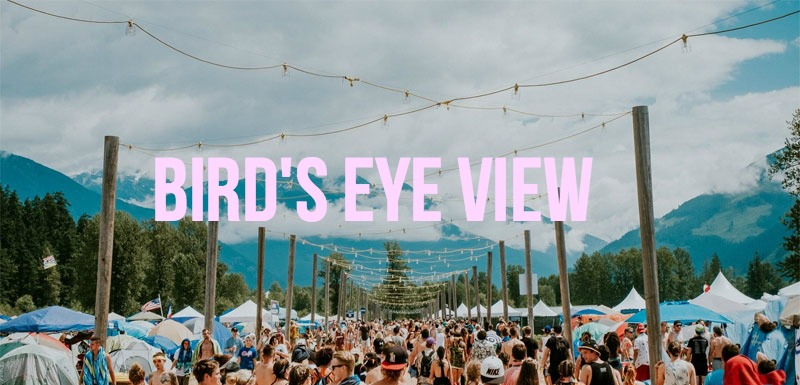
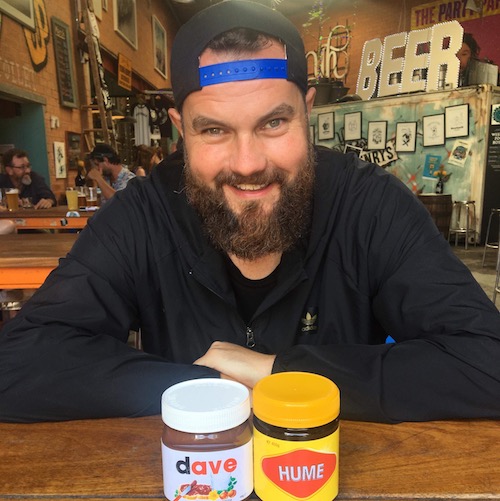

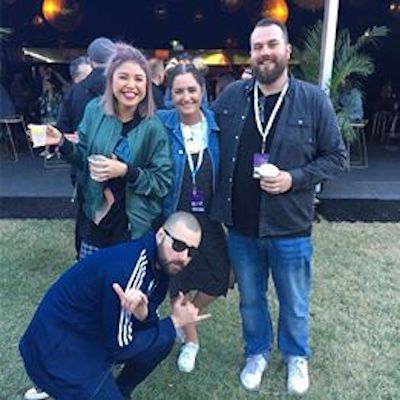




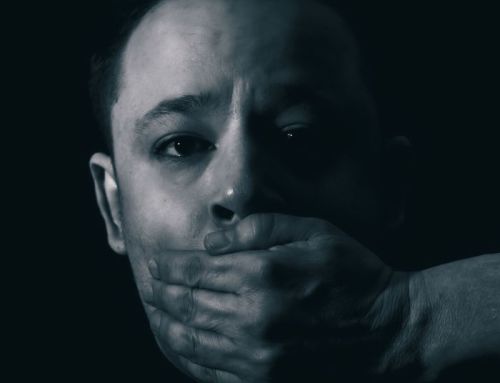
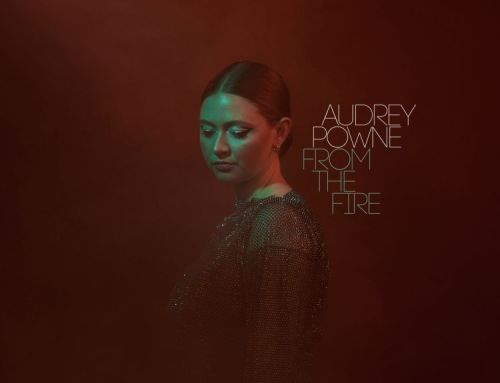
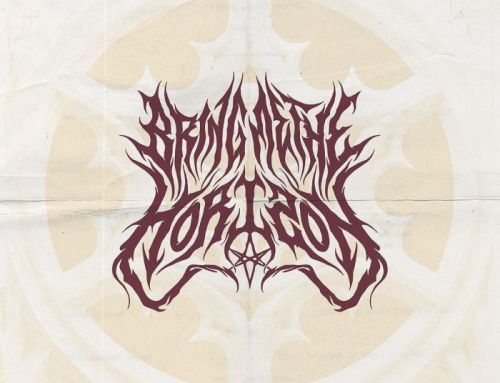
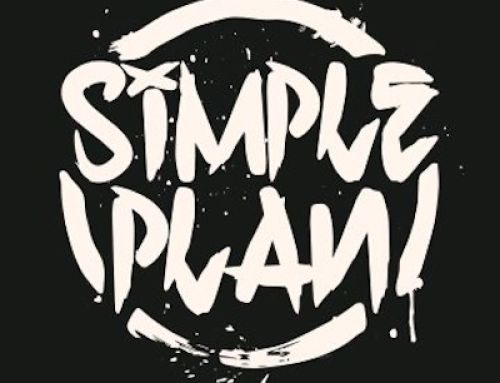
Leave A Comment